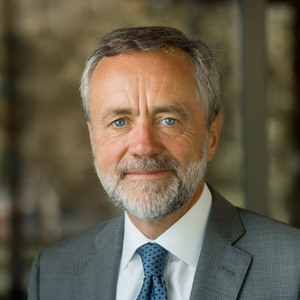One of my great joys is serving at a university where 1,022 students are majoring in the sciences, planning for vocations in fields from research to medicine to teaching to industry. More than ever, we need thoughtful and well-prepared Christians in the sciences. I don’t say this because these are among the fastest-growing career fields. Nor do I say this because high school students are indicating increased interest in health and STEM (science, technology, engineering and math) vocations.
We need Christians in science fields because this is how we live out our faith as God’s redemptive people, bringing hope and healing and health. For over 2,000 years, Christians have been leaders and not followers in this area: doctors and nurses curing diseases, establishing hospitals, advocating research, pioneering technology and advancing understanding in the sciences.
Our goal at Biola is to graduate a generation of students who are ethical and excellent professionals in the sciences, grounded in a Christian worldview. These values inherent to a Biola education have attracted more students, with the number of science majors increasing by 79 percent over the past five years. In response, we continue to envision new, expanded and strengthened programs. We are working to recruit top-tier high school graduates, first-generation students, underrepresented minorities and women in the sciences. Biola is moving forward in the sciences with a high bar and bold aspirations.
Pouring into the lives of our students are our faculty. Biola professors not only mentor and teach, but so many of them come with outstanding credentials. Our science faculty have come to Biola from graduate schools like Stanford, Berkeley, Duke, Cornell, University of Pennsylvania, UCLA and UCI. They are engaged in research (see page 30) and excel in teaching. They don’t bifurcate their faith and their scholarship. They have chosen Biola because it’s a place where they can integrate a Christian worldview into their discipline in a way that gives students a greater picture of God’s truth. They are investing in students who are making a difference.
Alumna Sarah Lum (’14) is pursuing a Ph.D. in analytical chemistry at Notre Dame, receiving a substantial scholarship in part because of research she did while a student at Biola. Biochemistry major Gabby Odudu (’13) completed an accelerated master’s degree in global medicine at the University of Southern California. She is now in medical school at UCLA and a recipient of the David Geffen full tuition scholarship.
Samuel Hammer is a Biola sophomore, a student I have had the pleasure of mentoring. He spent his first two years in a Bangalore orphanage fighting childhood diseases before being adopted by a family in Colorado. Now he’s a biochemistry major wanting to give back as a physician, embodying the same compassion health care workers had for him as an outcast in India. Tyler Caldwell (’15) is another student I was honored to mentor. He enrolled in our 3–2 engineering program, a partnership we have with major research universities, and graduated this year with a joint engineering degree from NYU and Biola.
Angela Nicholson (’15) came to Biola as a budding ballerina before being captured by the study of science. Recently she shared her story with a group of science leaders visiting the university.
Here is a bit of what Angela said after her summer internships at MIT and Caltech, undertaking brain research.
“Part of the reason I want to get my Ph.D. is that I think it is imperative that there are intelligent, thoughtful people who model what it is to both believe in Christ and be a good scientist. My Biola experience established a strong foundation for blending those two together through the challenging coursework and the emphasis on integration. Having professors demonstrate integration on a daily basis has taught me that faith and science are not at odds, but actually enhance each other.”
As science and technology accelerate and new frontiers open in areas like genetics, reproductive technology, artificial intelligence, sustainable energy and more, we want more Biola graduates like these to be at the tables of decision making and innovation.
Faith and science have for too long been pitted against each other; the tension has been perpetuated by a scarcity of models of scientists, professors and students of faith who are serious about science. Biola wants to change that, and we already are. There are great men and women at Biola who are serious about their faith and serious about science. May there be many more.
 Biola University
Biola University



